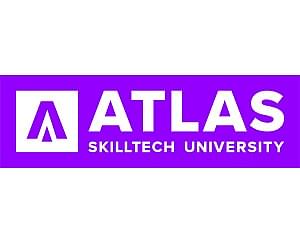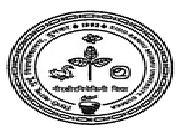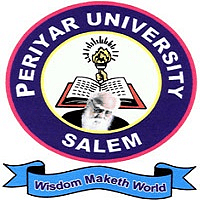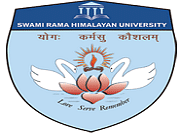Introduction about Ph. D in Guidance &
Counselling
A Ph.D. in Guidance and Counselling from top college is an advanced academic degree program designed for individuals
who aspire to become leaders, scholars, and practitioners in the field of
counselling and psychological support. This specialized program prepares
students to conduct advanced research, provide clinical services, and
contribute to the development of counselling theory and practice.
In a Ph.D. program
in Guidance and Counselling, students delve deeply into theories of human
development, counselling techniques, assessment methods, multicultural counselling,
ethics, and professional standards. They also engage in advanced coursework in
research methodology, statistics, and program evaluation to equip them with the
skills necessary to conduct original research and contribute to the scholarly
literature in the field.
One of the
distinguishing features of a Ph.D. program in Guidance and Counselling is the
emphasis on research and scholarship. Students are typically required to
complete a dissertation, which involves conducting original research on a topic
of their choice under the guidance of faculty mentors. This research
contributes to the advancement of knowledge in counselling theory, practice,
and policy.
Graduates of a
Ph.D. program in Guidance and Counselling are prepared for careers in a variety
of settings, including universities, colleges, community agencies, K-12
schools, government organizations, private practice, and research institutions.
They may work as counsellor educators, clinical supervisors, researchers,
administrators, or consultants, depending on their interests and career goals.
Overall, a Ph.D. in
Guidance and Counselling provides students with the knowledge, skills, and
credentials needed to make meaningful contributions to the field of counselling,
promote the well-being of individuals and communities, and advance the
profession through research, education, and practice.
What is admission process for Ph. D in Guidance
& Counselling
The admission process for Ph.D. in Guidance and Counselling typically involves several
steps, although specifics may vary between institutions. Here's a general
overview:
Research Programs: Start by researching Ph.D. programs in
Guidance and Counselling to find those that align with your academic interests,
career goals, and personal preferences. Look into factors such as faculty
expertise, research opportunities, program reputation, and location.
Meet Prerequisites: Ensure you meet the prerequisites for
admission, which often include a master's degree in counselling, psychology, or
a related field from an accredited institution. Some programs may also require
relevant professional experience or specific coursework.
Application: Complete the application form provided by
the institution offering the Ph.D. program. Applications are often submitted
online through the university's admissions portal. Pay close attention to
deadlines, as they vary between programs.
Transcripts: Submit official transcripts from all
post-secondary institutions attended, including undergraduate and graduate
coursework. These transcripts should demonstrate strong academic performance,
particularly in relevant coursework.
Letters of
Recommendation: Typically,
applicants are required to provide letters of recommendation from academic
and/or professional references who can speak to their qualifications, academic
abilities, research potential, and suitability for doctoral-level study.
Statement of
Purpose: Write a compelling
statement of purpose outlining your academic background, research interests,
reasons for pursuing a Ph.D. in Guidance and Counselling, career goals, and how
the program aligns with your aspirations. This is your opportunity to
demonstrate your passion for the field and your readiness for doctoral study.
Resume or
Curriculum Vitae (CV):
Provide a comprehensive resume or CV detailing your educational background,
work experience, research experience, publications, presentations, and any
relevant achievements or certifications.
Standardized Tests: Some programs may require standardized
test scores, such as the GRE (Graduate Record Examination) or the MAT (Miller
Analogies Test). However, many programs are moving away from standardized test
requirements or offering waivers for certain applicants.
Writing Sample: Some programs may request a writing
sample, such as a research paper, academic essay, or professional writing
sample, to assess your writing and analytical skills.
Interview (if
applicable): Depending on
the program, applicants may be invited to participate in an interview as part
of the admissions process. This interview may be conducted in person, over the
phone, or via video conference.
Application Fee: Pay the application fee, if applicable, as
required by the institution.
After submitting
your application materials, the admissions committee will review your complete
application package and make decisions based on factors such as academic
qualifications, research potential, letters of recommendation, statement of
purpose, and fit with the program. If admitted, you'll receive an offer of
admission along with any relevant financial aid or funding information.
What is eligibility for Ph. D in Guidance &
Counselling?
Eligibility criteria for Ph.D. in Guidance and Counselling can vary depending on the
specific program and institution offering the degree. However, here are some
common eligibility requirements you may encounter:
Educational
Background: Typically,
applicants are required to hold a master's degree in counselling, psychology,
or a closely related field from an accredited institution. The master's degree
should provide a solid foundation in counselling theory, techniques, and
research methods.
Academic
Performance: Applicants are
generally expected to have a strong academic record, particularly in
graduate-level coursework relevant to counselling and psychology. This may be
evidenced by transcripts from previous academic institutions.
Work Experience: While not always required, many Ph.D.
programs in Guidance and Counselling prefer applicants with relevant
professional experience in counselling, therapy, psychology, or related fields.
This experience might include counselling practice, clinical work, research, or
teaching.
Research Experience
and Skills: Demonstrated
research experience and skills are often valued for admission to a Ph.D.
program. This might include prior research projects, publications,
presentations at conferences, or involvement in research-related activities.
Letters of
Recommendation: Applicants
are typically required to submit letters of recommendation from academic and/or
professional references who can speak to their academic abilities, clinical
skills, research potential, and suitability for doctoral-level study in counselling.
Statement of
Purpose: A well-written
statement of purpose or personal statement is often required, in which
applicants articulate their academic and professional background, research
interests, reasons for pursuing a Ph.D. in Guidance and Counselling, and how
the program aligns with their career goals.
Standardized Test
Scores: Some programs may
require applicants to submit scores from standardized tests such as the GRE
(Graduate Record Examination) or the MAT (Miller Analogies Test). However, many
programs are moving away from standardized test requirements or offering waivers
for certain applicants.
Language
Proficiency: International
applicants whose native language is not English may need to demonstrate
proficiency in English through standardized tests such as the TOEFL (Test of
English as a Foreign Language) or the IELTS (International English Language
Testing System).
It's important to
note that eligibility requirements can vary between institutions and programs,
so it's essential to carefully review the specific requirements of each Ph.D.
program you're interested in applying to. Additionally, some programs may have additional
requirements or preferences beyond those listed here.
What is syllabus for Ph. D in Guidance &
Counselling ?
The syllabus for Ph.D. in Guidance and Conselling can vary significantly depending on the
specific program, institution, and the research interests of faculty members.
However, here are some common topics and areas of study that you might
encounter in a typical Ph.D. program in Guidance and Conselling:
Advanced Conselling
Theory and Practice:
Advanced
exploration of conselling theories (e.g., cognitive-behavioral, psychodynamic,
humanistic-existential)
Advanced conselling
techniques and interventions
Integrative
approaches to conselling and psychotherapy
Research Methods in
Conselling:
Advanced research
methodologies in conselling psychology
Quantitative
research methods (e.g., experimental design, surveys, statistical analysis)
Qualitative
research methods (e.g., phenomenology, grounded theory, narrative analysis)
Mixed-methods
research approaches
Conselling Ethics
and Professional Issues:
Ethical principles
and standards in conselling practice and research
Legal issues in conselling
(e.g., confidentiality, informed consent, duty to warn)
Professional
identity, roles, and responsibilities of consellors
Multicultural Conselling
and Social Justice:
Advanced
exploration of multicultural conselling theory and practice
Cultural competence
and humility in conselling
Social justice
advocacy and activism in conselling
Advanced
Psychopathology and Assessment:
Advanced
understanding of psychological disorders and diagnoses
Advanced assessment
techniques in conselling (e.g., psychological testing, clinical interviews,
diagnostic criteria)
Diagnosis and
treatment planning in conselling practice
Supervision and
Consultation:
Advanced theories
and models of clinical supervision
Supervision of conselling
trainees and clinicians
Consultation skills
for working with individuals, groups, and organizations
Consellor Education
and Training:
Advanced principles
and practices of consellor education
Curriculum
development and evaluation in consellor education programs
Training and
supervision of conselling students and interns
Advanced Topics in Conselling
Specializations:
Advanced study in
specialized areas of conselling (e.g., couples and family conselling, career conselling,
substance abuse conselling)
Cutting-edge
research and emerging trends in conselling
Dissertation
Research:
Proposal
development and research design
Data collection and
analysis
Dissertation
writing and defense
Universityfindo is best place where you learn , you encalcate habits , etc . We provide you platforms to develop your skills and move towards a better future with best packages












